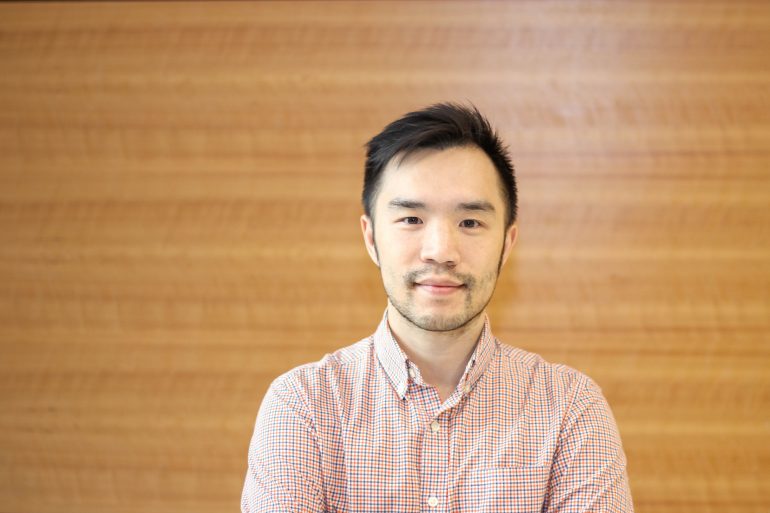Dr. Leo Chou joined the Institute of Biomaterials and Biomedical Engineering (IBBME) last week as an assistant professor. Dr. Chou started his academic career at the University of Toronto – first as an undergraduate student in Engineering Science, followed by his doctorate study in Dr. Warren Chan’s laboratory at IBBME. Dr. Chou continued his postdoctoral fellowship in Boston, where he spent the last four years at the Wyss Institute and the Dana-Farber Cancer Institute.
Why did you pursue your undergraduate and graduate degrees at the University of Toronto?
After I graduated from high school, I knew that I wanted to continue my studies in top-learning environments. I thought Engineering Science was a great start because of its flexible curriculum, which gave me the opportunity to learn about different options in the biomedical field. Whilst doing my undergraduate studies at UofT, I met my PhD advisor, Warren Chan, and became interested in his research on biomedical nanotechnology. IBBME is in a unique space due to its interdisciplinary research topics, and I made a lot of solid connections here at the institute.
What is your research focus at IBBME?
Broadly speaking my lab is interested in the design and engineering of artificial molecular machineries using DNA nanotechnology. We are all familiar with DNA as a genetic material, but we don’t often think of it as a ‘brick & mortar’ toolset to build molecular machineries with. Since each of the DNA bases (A, C, T, G) interact with each other in a specific fashion, we can have enormous control over how these molecular architectures are built, and ultimately, what kind of function they will exhibit. This is analogous to a Lego set with 4 unique pieces, and based on how we combine them together, we can build trucks, airplanes, or trains. We are interested in using these features as a molecular toolbox to solve problems in molecular diagnostics, biomarker detection, synthetic biology, and therapeutic discovery.
Why did you choose the University of Toronto to set up your lab?
UofT is a top-notch university on the international stage with a tremendous diversity of expertise – from the physical and life sciences, to engineering, to the clinical work in hospitals. I have had first-hand experience on what it feels like to work in this environment. When I was given this unique opportunity to work in the same department from where I graduated, it was an obvious decision for me. I am excited to be a part of the community and help shape its research trajectory. Toronto is also a great city to live in, I always find myself coming back!
Where do you see your lab in the next 5 to 10 years?
If we can design and build artificial molecular systems that have the same level of functional complexity as the ones found in living cells and tissues, that would be fantastic. Imagine building an artificial cell using pre-existing biological materials and programming that cell to perform a specific set of actions. That capability will open up completely new ways to diagnose and treat diseases and enable new biological discoveries.
What do you do on your spare time?
I am an avid basketball fan, I used to play a lot but now I just watch Raptors games. I also like all things outdoors. Camping and hiking are my go-to hobbies in the summer.


